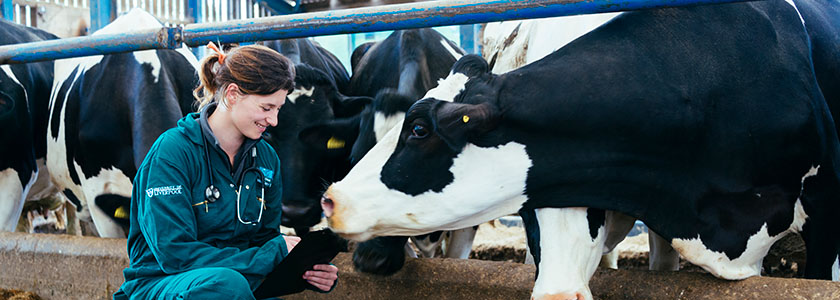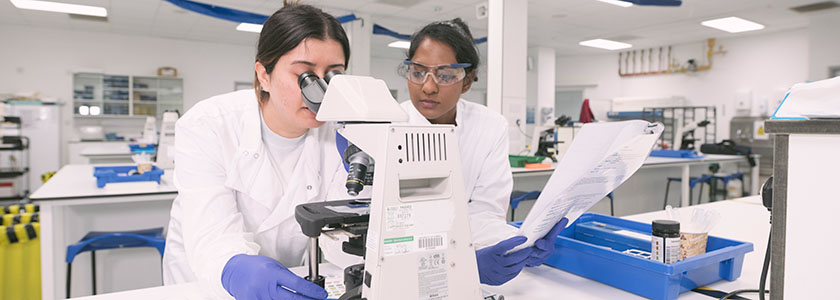-
-
- Council Members
- Role of Council Members
- Council meetings
- Council elections
- Previous election results
- Dr Louise Allum
- Dr Sam Bescoby
- Dr Andrew Clemence
- Dr Tshidi Gardiner
- Dr Reginald Godwin
- Paddy Gordon
- Dr Danielle Greenberg
- Dr Gerard Henry
- Dr Richard Hillman
- Dr Benjamin Kennedy
- Dr Tom Lonsdale
- Dr Darren Partridge
- Martin Peaty
- Alison Price
- Dr Peter Robinson
- Dr Jennifer Simmons
- Dr Sadie Spencer
- Dr Mary Thomas
- William Wilkinson
- Dr Lara Wilson
- Past-Presidents
-
- Advancement of the Professions Committee
- Standards Committee
- Audit and Risk Committee
- Education Committee
- Disciplinary Committee
- Charter Case Committee
- Preliminary Investigation Committee and Disciplinary Committee Liaison Committee
- Registration Committee
- Preliminary Investigation Committee
- Paper classification: some definitions
-
-
-
-
-
- About extra-mural studies (EMS)
- EMS requirements
- Information for vet students
- Information for EMS providers
- Information for vet schools
- Temporary EMS requirements
- Practice by students - regulations
- Health and safety on EMS placements
- EMS contacts and further guidance
- Extra-mural studies fit for the future
-
-
- Code of Professional Conduct for Veterinary Surgeons
- Code of Professional Conduct for Veterinary Nurses
- Contact the Advice Team
- XL Bully dog ban
- 'Under care' - guidance
- Advice on Schedule 3
- Controlled Drugs Guidance – A to Z
- Dealing with Difficult Situations webinar recordings
- FAQs – Common medicines pitfalls
- FAQs – Routine veterinary practice and clinical veterinary research
- FAQs – Advertising of practice names
- GDPR – RCVS information and Q&As
-
- Accrediting veterinary degrees
- Accrediting veterinary nursing qualifications
- Reasonable adjustments for student vets
- Reasonable adjustments for student veterinary nurses
- Health and disability in veterinary nurse education and training
- Reasonable adjustments for students and the UK disability discrimination legislation
- Educational assessment of veterinary nurses
- Roles of key stakeholders in the application of reasonable adjustments
- Examples of reasonable adjustments for vet nurse students
- External review of the RCVS by ENQA
- Requirements for remote and online student assessments
Making EMS fit for the future
This feature was first published in Vet Record (the official journal of the British Veterinary Association (BVA)) on 20 January 2023 as part of a series of articles to provide more details of the forthcoming changes to our policies on extramural studies. In this first article, RCVS Director of Education Linda Prescott-Clements sets out the case for reform and how the overall student experience should be improved by it.
 TIME and time again, RCVS research and feedback received following consultations with veterinary students, recent graduates and established members of the professions, including those who provide placements, have indicated that extramural studies (EMS) are considered to be one of the most valuable, and valued, aspects of the undergraduate veterinary degree.
TIME and time again, RCVS research and feedback received following consultations with veterinary students, recent graduates and established members of the professions, including those who provide placements, have indicated that extramural studies (EMS) are considered to be one of the most valuable, and valued, aspects of the undergraduate veterinary degree.
We have all heard anecdotes of graduates who were previously unsure about what direction they wanted to take their degree in, but who found their passion for a particular aspect of veterinary work, whether that's in farm animal practice, research or industry, thanks to an inspiring EMS placement.
So, why change it? As valued as EMS placements are, students, vet schools and other stakeholders have been making it clear to us for some time that a number of challenges exist in regard to the accessibility and availability of placements. The costs to students of undertaking EMS placements are acting as a barrier to widening participation, and as an increasing number of vet schools and students come on stream – and with growing pressures on the veterinary workforce – the availability of placements for the number of students needing them has also become an issue, with increasing competition between students for a limited number of places.
When we held our EMS stakeholder event in autumn 2021 we invited a wide range of veterinary educators, students, EMS providers, graduates and employers to consider potential solutions. This was a comprehensive, unrestrained discussion and the suggestions were accordingly varied. However, there was support for an approach which would allow for a reduction in the overall number of weeks of EMS required, providing the RCVS did more to ensure a consistently high-quality EMS experience focused on personal learning outcomes, through enhanced quality assurance. Likewise, it was also suggested that the requirement for EMS placements to cover a certain number of weeks in each of the main species groups could be changed to allow for students to focus their placements and developments in their areas of preferred interest.

Our vision for sustainable EMS
Drawing upon the discussions at the stakeholder day, as well as the numerous other sources of feedback on EMS placements obtained over recent years, including that provided by organisations such as the Society of Practising Veterinary Surgeons and the BVA, our education committee was tasked with coming up with a series of proposals that ensured the value EMS placements add to students' professional development and experience continued. It also had to address the challenges faced by students (and providers), provide a more consistent quality experience and improve accessibility and equality.
We believe the set of changes we have come up with strike that balance correctly, signalling a move to an EMS system that ensures placements are tailored to the needs of individual students and are outcomes-focused, sustainable and valuable to those who undertake them.
While subsequent articles in this series will be exploring the changes in greater depth, here is a brief overview of the four changes that will be brought in for first-year veterinary students from autumn 2024, and what they hope to achieve are provided.
Reducing the number of weeks of EMS required
From 2024, there will be an overall reduction of eight weeks in the compulsory EMS requirement, with each student needing to complete 10 weeks of animal handling EMS and 20 weeks of clinical EMS (compared to the current requirement of 12 weeks and 26 weeks, respectively). To ensure the overall positive impact is maintained, despite the reduction in weeks, we will improve the consistency and quality of EMS experiences through taking a more outcomes-focused approach to planning EMS placements. Improved proactive communication between students, schools and providers to ensure expectations are clear in advance and subsequently met on all sides will also support this. The reduction in weeks will reduce the costs to students and ease some of the challenges faced by students around availability and equality.

Increased flexibility around undertaking placements
While EMS placements will continue to be measured in weeks, there will no longer be a requirement to undertake placements in week-long ‘blocks’. This change recognises that some students may struggle to undertake such placements due to the need to work part time or if they have caring responsibilities. For example, under the new arrangements, students may be able to attend a placement once or twice a week over a longer period of time in order to meet the requirement. Similarly, flexibility around students being able to choose EMS placements in the areas of the profession which interest them most, or are most beneficial to their professional development, will help ensure a better experience for both the student and the provider.
EMS booking database
There will be a consolidated national database operated and maintained by the RCVS to provide a range of placement information from EMS providers to students and vet schools, to allow them to make informed choices about where they take up EMS based on their own needs and learning objectives. The database will be piloted from this autumn and among the information we expect it to include will be the location and availability of placements, transport links, accommodation and support in the workplace, as well as details on the types of cases seen and what a student could reasonably expect to experience and how.
Promoting the value of EMS to providers
While the reduction in required EMS weeks will, in theory, reduce pressure on the ‘demand’ for placements overall, the increasing number of students and vet schools in the UK means that EMS placements are needed more than ever in order to meet demand. The feedback that we receive from EMS providers tells us clearly that they too find it valuable in terms of the sense of personal and professional satisfaction it gives them to pass on their experience and expertise to vet students, and the valuable contributions students make to the workplace during the time they spend there. We want more veterinary practices and workplaces to get this benefit, and so will work to promote EMS and support its implementation, as well as offer guidance and CPD courses to providers via the RCVS Academy.
Beneficial change
We firmly believe that these changes are positive ones that will lead to an EMS system sustainable for the future. They are not just ‘tinkering around the edges’, but nor are they a tearing up of a system that has incredible value and has clearly helped many student vets for many years. The whole purpose of what we are doing with these changes is to enhance EMS, to address some of the challenges and make it an inspiring and rewarding experience for all involved, rather than it being seen as an unwelcome administrative burden.
Further articles in this series will explain in greater depth what we aim to achieve and how – but in the meantime, please take a look at the full new EMS policy on our dedicated EMS policy page.
February 2023